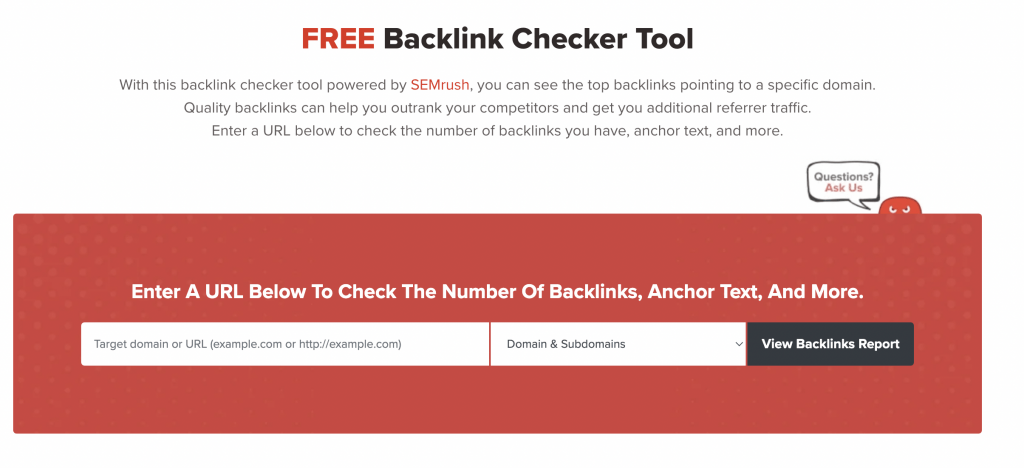Quick Links
If you grew up watching reruns of old cartoons like The Jetsons and The Flintstones, you’re familiar with the power of content syndication.
Although a show like The Flintstones ended its original run back in 1966, re-airing those episodes on various networks (syndication) made the cartoon iconic for many generations to come.
Had the show not entered syndication, its original run in the ’60s would have been people’s only chance to experience it – and it would have likely faded into obscurity.
In other words, kids who grew up in the ’70s, ’80s, and ’90s would have no clue who Fred Flintstone was if there were no reruns.
What the heck does this have to do with SEO?
Just as The Flintstones used syndication to gain a wider audience, you can do the same thing with your blog posts, videos, infographics, and other forms of content.
Content syndication is where you republish your existing content on other websites and publications.
You’ve probably read an article or watched an online video that said, ‘This piece was originally published on blahblahblah.com.’
That’s the telltale sign of syndicated content, and it’s a fantastic tactic for broadening your online reach and generating backlinks from other sites.
After all, you work your tail off on your content, so why should you only publish it once in one location?
Instead of taking a one-and-done approach to publishing content, read on to learn how you can copy The Flintstones’ success and syndicate it to enjoy a much larger audience.
What About Duplicate Content?! Understanding Proper Content Syndication
Trained SEOs are hard-wired to avoid duplicate content, which is why the thought of syndicating content raises a red flag.
However, duplicate content and syndicated content are two different things.
As long as you syndicate your content correctly, you’ll never have to worry about Google flagging your content as duplicate.
How do you do that?
Canonical tags are your best friend here, as they’ll let Google know which version of your content is the original (and that you want Google to include in their index/search results).
For instance, if you syndicated one of your blog pieces on a related website, you wouldn’t want Google to index that version, as the other site will receive the traffic. Instead, you want Google to index the original version that appears on your website.
A canonical tag is a brief snippet of HTML code that defines the primary version of a web page.
It looks like this:
<link rel=”canonical” href=”https://examplesite.com/preferred-primary-URL-here”>
So, whenever another website agrees to publish one of your pieces, politely ask them to include a canonical tag that points back to the original version on your site.
Pro tip: Google’s John Mueller has confirmed the effectiveness of including self-referential canonical tags for your content. That’s where you include a canonical tag on your content’s original version that references its own URL.
This is useful because it helps Google know for sure which version of your content you want it to include in its index.
Including links in syndicated content
Your syndicated pieces should always include a link back to your original piece.
Not only does this create a backlink for you (score!), it’s also what Google recommends you do to help avoid duplicate content.
Besides that, another major perk of content syndication is that if you get the green light to include internal links in your syndicated pieces, you can drive a lot of traffic to other pages on your site.
You should always check with your syndication partners beforehand to confirm that they’re cool with including links that point back to your site, as it’s never wise to assume.
If they’re okay with it, you’ll score even more backlinks to your website, and your syndicated articles will transform into traffic-generating machines.
How to Make Content Syndication a Reality
If you want to start syndicating your content, you’ll need to build a network of syndication partners.
These are other websites in your field that accept syndicated posts, and they’re not always super easy to find (although we’re about to show you how).
You can also syndicate your content through social media and platforms like Quora and Reddit.
Tips for finding syndication partners
There are plenty of syndication networks out there, which are groups of related sites that syndicate similar content.
Typically, a parent site will own dozens (or hundreds) of media outlets that syndicate the same articles.
These networks are amazing because they enable you to syndicate your content across multiple websites (and most of the time, you only have to maintain a single relationship to do so).
Besides syndication networks, you should also target non-competitors.
These are other websites that don’t directly compete with your business but share the same target audience.
Let’s say that you sell custom-made guitars online.
In this case, your non-competitors would be guitar blogs, guitar lesson & tablature sites/video channels, and websites that sell guitar accessories like straps and clothing.
Here are some quick tips for finding syndication partners and non-competitors:
- Use our free backlink checker tool to analyze the backlink profiles of your competitors. Look out for links from local media outlets and non-competitors to use for your syndication strategy.
- Pull up Google search and look up terms like “originally published on” (niche keyword), “republished from” (niche keyword), and “syndicated from (niche keyword)” to find sites that accept syndicated articles.
It’s crucial to include quotations in these queries, as that tells Google to look for that exact phrase in the search results.
Syndicating on social media and other platforms
Even if you find a ton of syndication partners, it’s still a good idea to put your social media profiles to good use and syndicate your content there, too.
The catch?
Certain types of content perform better on social media sites like LinkedIn, Twitter, and Facebook.
In particular, syndicate short-form videos, infographics, and condensed blogs that fit into carousels on social media.
Question/answer-based platforms, like Reddit and Quora, are also useful for syndicating content.
However, you’ll usually want to include brief excerpts along with a link to the original piece to avoid being too verbose.
Let’s not forget about self-publishing websites like Medium and Substack, either. These are great places to syndicate your most entertaining and thought-provoking pieces to gain exposure and loyal readers.
Syndicating through social media and platforms like Medium won’t cost you a dime, so it’s worth using them as syndication channels to expand your influence even further.
Becoming a Thought Leader Through Syndication
Content syndication is a powerful way to bolster your backlink profile while expanding your influence online.
The more websites and publications that feature your content, the more members of your target audience will get the chance to notice you and become loyal readers/customers.
One of the best things about content syndication is that virtually anyone can do it by using social media and platforms like Medium.
That means you can start syndicating your strongest pieces today while working on a greater content syndication strategy, like targeting networks and non-competitors.
To cut straight to the chase and enjoy content syndication on 300+ trusted media outlets ASAP, don’t wait to check out our Content Syndication service from The HOTH.










Content syndication is a great method for republishing content on other sites in order to reach a broader audience. Syndicated content not only increases your reach and also increase brand awareness.
Thanks for the Amazing Article.
Good stuff David; I’m really excited the way you narrated the topic. I haven’t heard the term content syndication and by your post, I came to know about it. It will definitely work for fortune 500 companies. Expecting more topics from you especially in the area of content marketing. Thanks.
Thank you!
David, I see this content syndication on too many big platforms. This is really a valuable form of link building. Great research David.
Hi David, thanks for the info on syndication and letting us know about your service.
Do you know if every site an article gets syndicated on uses the canonical tag?
We encourage all of our publishers to use the original link as the rel=canonical tag, however, we cannot guarantee that all publishers will. The good thing is that Google is pretty smart. The best way to approach this is to simply publish the piece on your site first so Google sees you as the original source, make sure it gets indexed, then syndicate it.
such a detailed article, The word “content Syndication” is completely new to me, after reading your article I have good knowledge of content syndication. After reading this article I became a fan of “thehoth.com”. Looking forward to your next articles.
Thank you for the article, David.
If an article has internal links pointing to supporting articles, service/product/category pages and/or the homepage, then gets syndicated, what kind of risk would there be with anchor text over-optimizations? Once it’s out there, those few internal link anchor texts would suddenly be heavily weighted in the distribution.
I have been using this method with our blog posts and have been getting large spikes in both traffic and a nice increase in DA. You have to strategically plan these out, but they work wonders for both branding a business and getting some high PR style links.
Hey team,
I think this is a timely article. I saw many syndication in the past but didn’t really bother to try it out.
I’m gonna follow this guide and try out. Who knows!
Thank you for sharing.
Reg
Thanks for the blog post, David. I am a first-time business owner and I had no idea that duplicating blogs was aloud. I appreciate you for making me aware of this strategy.
Great article. Thanks for putting this together. I know content syndication works and I have personally used it to get tons of links and traffic to my blog. But David, the success of the outcome of this strategy depends largely on the quality of the article or content being syndicated.
How can you be sure they use a Canonical tag? The pitch sounds like “here ya go! Ready to publish!”
Hey Troy, if you’re referring to our product HOTH Syndication, we already worked with publishers to get this piece right. If you’re talking about executing this on your own, then you would want to work with them as well.
Great post, the holy grail to high profile backlink the word I have heard but not in the clear sense as I seem to have after reading your post. But I think it will be heard to convince the authoritative sites to give away a backlink. And one thing still not clear to me is the “rel = canonical” tag. Is the tag has to be in the authoritative site or in the syndicated article that I will post
The publisher that is using your content should have a canonical tag pointing back to your website as the original source.
Great read. I do think the duplicate content aspect is a pretty tough hurdle to overcome though. Unless the site you’re pitching to understands SEO and coding, they likely won’t know what a canonical tag is or how to implement it. So convincing them to republish your article and properly setup the canonical, could prove challenging.
But, what’s very interesting is in the first few examples you provided, the sites republishing do not use canonical tags. So is this a matter of major websites being able to get away with bad practices? Or, is providing credit at the end of the article sufficient?
It can be a bit of both – when I see syndicated content across the web, they generally do have links that point to the original source, and also if Google has indexed the content elsewhere previously (for instance your site), Google already knows the original source.
Un Articulo de mucha ayuda, muchas gracias
I am really excited about syndication. This month i’ll buy and let’s see how it works?
Hopeful
Thanks for sharing the detailed info… I am delighted after reading complete post. Definately going to use in content syndication.
excellent article written …I really appreciate your efforts. I will surely use this technique.
Content syndication is a normal part for any press release. It also help in indexing the article at a very fast rate. I always give a plus point to Content Syndication.
Hi Clayton, Is it okay to use content syndication for a fairly new website. The article peaked my interest and something I want to look into. Do you suggest doing content syndication or one of the foundation packages for a young site.
Thank you for sharing the article, David. Content Syndication word is completely new for me, after reading your article I have good knowledge of content syndication. Thanks!
Thank you for sharing the article,. Content Syndication word is completely new for me, after reading your article I have good knowledge of content syndication.
The information you’ve shared in this blog is remarkable. Thanks for sharing such quality information.
Nice post
Thanks for sharing the detailed info… I am delighted after reading complete post. Definately going to use in content syndication.
Hello David Fialkoff,
Very nice and valuable information you have gave here. I see this content syndication on too many big platforms. This is really a valuable form of link building.
Thanks
Gratitude for putting up this prolific article! You truly make everything a cake walk. Genuinely good stuff, saving time and energy.
Thanks for sharing informative post.
Thank you for sharing the article, David. Content Syndication word is completely new for me, after reading your article I have good knowledge of content syndication. Thanks!
I am also SEO Expert and this article is really insightful. Thanks
I am regularly following your blogs it helped in my website SEO. Thanks
I am regularly following your blogs it helped in my website.
Great post i must say and thanks for the information. I appreciate your post and look forward to more.
Great post i must say and thanks for the information. I appreciate your post and look forward to more.
I am regularly following your blogs it helped in my website SEO. Thanks
I never thought of content syndication as a solid SEO strategy. However, now I think it can do wonders if used properly.
Great blog! Enjoy reading it! I also bookmark this site for visiting and updating regularly! thank you for sharing with us!
Great piece of content! Content syndication is important because it helps you reach a larger audience with your content. When you syndicate your content, you make it available to other websites and publications who can then share it with their own audiences. This allows you to reach a larger number of people with your message and to build your brand. Content syndication can also help to increase your search engine ranking, as your content will be associated with high-quality websites.
Detailed and easy to understand! Thank you for this content. Content syndication is a great way to get your content to reach a wider audience. It involves sending your content to other websites, platforms, and services so that more people can have access to your content. This helps drive more traffic to your website and can help you better engage with your customers. With content syndication, you can make sure that your content is being seen my more people, and it can help you reach a broader audience.
Thank you for sharing this article. It’s very Informative.
Great post i must say and thanks for the information. I appreciate your post and look forward to more. I am an SEO Expert In West Bengal.
Thanks & Regards
Surojit Bera
For anyone who is looking to know more about Content syndication and how its helpful I will recommend this article. Nicely written article!
Great post thanks for share
Interesting facts on content syndication.
Content syndication is new topic for us and well described here.
thank you for your efforts.
This article on content syndication is a comprehensive guide for anyone looking to expand their reach and maximize the value of their content. The explanations and tips are clear and actionable, making it a valuable resource for both beginners and experienced content creators. Thank you for sharing this valuable knowledge!
“Unlock the potential of your content through syndication—an SEO powerhouse and link-building catalyst. By strategically distributing your valuable content across reputable platforms, you amplify its reach while building a network of high-quality backlinks. This symbiotic relationship between syndication and SEO not only elevates your visibility but also establishes your authority in the digital realm, ensuring your content resonates far and wide while fortifying your online presence.”
Content syndication didn’t initially strike me as a robust SEO strategy. Yet, I’ve come to realize its potential to yield remarkable results when employed thoughtfully and effectively.